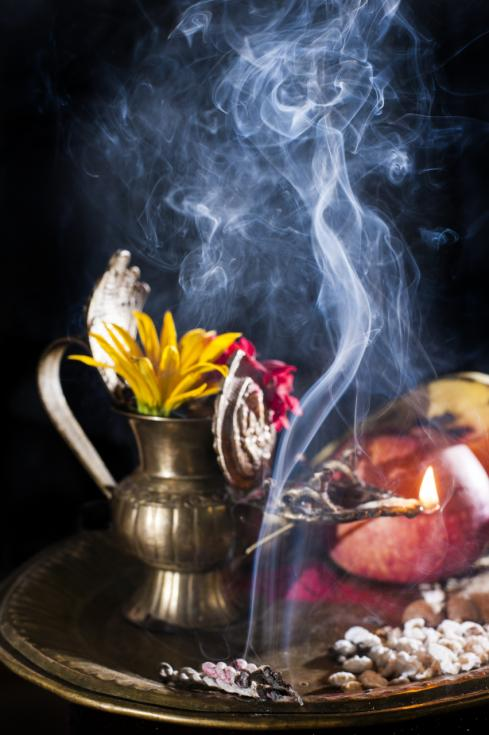I have been talking endlessly for more than a decade! How is this...?
I’m a member of Toastmasters International, and have been for more than a decade. Toastmasters is an international organization dedicated to making good oral communication a worldwide reality. Toastmasters International supports members to develop and enhance their oral communication and leadership skills in a friendly, yet professional environment.
Nepal has two Toastmasters clubs. The Kathmandu Club was founded in 1991 and the Everest Club began in 2004. Both adhere to the Toastmasters International charter and have been providing members with opportunities to improve their skills.
My experience is fairly typical. I began my Toastmasters journey in Harare, Zimbabwe in 1994; I had always wanted to be con.dent in speaking before audiences. My career development in marketing would eventually bene.t from this decision, as my job was all about effective communication.
I clearly recall my .rst speech, the ‘Ice Breaker’.dry throat, quivering knees and butter. ies in the pit of my stomach. I survived that one, and the next and subsequent speeches on different occasions, until I .nally achieved my .rst Toastmasters accolade as a ‘Competent Communicator’. This award is given after completing the . rst ten speech presentations as described in the Competent Communicator manual.
The Competent Communication manual is a series of ten self-paced speaking assignments designed to instil a basic foundation in public speaking. Members learn skills related to the use of humor, gestures, eye contact, speech organization, and overall delivery. When . nished with this manual, members can choose from 15 advanced manuals to learn other skills related to speci. c interests.
The encouragement from my speech evaluators and those who heard me speak gave me the confidence to continue. With each speech presentation I learned something new. Even now, over a decade later, I am still learning new communication skills and ways of improving my presentations.
In addition to evolving communication skills, leadership skills are also improved by taking on various new roles at club meetings. I served, for example, as a Club Of. cer in several leadership roles, including Area Governor, Club President, Club Vice President for Education, and others. Furthermore, Toastmasters offers additional leadership skills development by working through the Competent Leadership manual and the High Performance Leadership program.
Through my membership in Toastmasters of Zimbabwe, I was exposed to, and interacted with, colleagues from South Africa, Zambia, and Malawi, to mention a few. I have interacted with some of the best communicators in Southern Africa, one of whom came third in the Toastmasters International speech contest in the USA some years back. I have seen struggling and ineffectual communicators blossom and thrive to become much admired eloquent speakers. I can relate to that, as I was one too when I began my journey with Toastmasters.
I can truly say that my career development and progression owes a great deal to Toastmasters and the communication and leadership skills that I have learned. I have also been privileged to be a member of a Toastmasters club in Jakarta, Indonesia, where there are more than 23 clubs. I was pleasantly surprised to .nd that the clubs in Indonesia operated in familiar ways. I have made many new friends within the Toastmasters family.
TOASTMASTERS IN NEPAL
When I arrived in Nepal, where my family and I are now stationed, I was not sure what to expect. I assumed there would be no Toastmasters clubs and thought that perhaps I would have to take a leave of absence from Toastmasters until my work took me to another country. Imagine my surprise and delight when I found two thriving clubs in Kathmandu.
It has been some months now since we arrived in Nepal, and we have settled in well and are enjoying our new home. We are making new friends and learning new cultures. One highlight during the .rst few months was going to Toastmasters meetings at the two Nepali clubs. It was like coming home to a place I had known before.a happy family reunion. Fellow Toastmasters were welcoming and friendly and in no time at all, I felt as if I had been a member of both clubs for many years. Granted, English is not the .rst language of the majority of members in the clubs, so grammatical errors are evident, but the helpful and non-judgemental way in which members are corrected encourages them to improve.
The membership of the local clubs is naturally dominated by Nepalis, but I personally feel that the clubs would bene.t greatly from a mixture of international members. Such an infusion would create a more cosmopolitan atmosphere and would provide valuable and constructive support, which would be mutually bene.cial for both the existing members and those who would join.
I firmly believe, from what little I have seen here so far, that there is a latent demand for more Toastmasters clubs in Nepal to cater for the many individuals, communities, businesses and other organisations. It would encourage better communication and more effective leadership. It is speci.cally during this time in Nepal’s history that effective communicators and good leaders are required to lead the country to even greater heights.
Meanwhile, for me, the endless talking continues. To experience a great ‘high’, come join me on the Toastmasters journey at the next Kathmandu or Everest Toastmasters club meeting.
The Kathmandu Toastmasters Club meets every Wednesday at 6pm at the Institute of Environment Management, Tripureshwor, Kathmandu. Phone 428.8847 for information. Email: ashwini@shakuntea.com. The Everest Toastmasters Club meets every Sunday at 6pm at the Yala Maya Kendra, Patan Dhoka, Lalitpur. Phone 98510.22.192 or 98412.41.166 for information. Email: sushak@gmail.com. The author, Derrick Sanyahumbi, can be contacted at tmdsan@yahoo.com.







